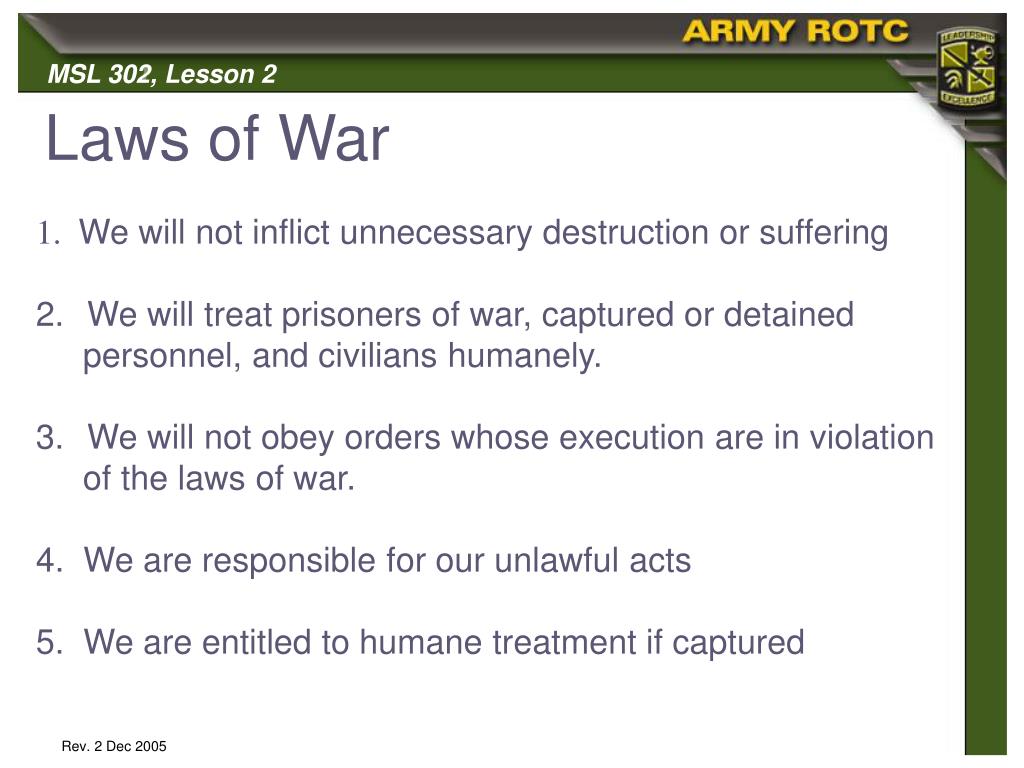What are the 5 laws of war?

The rules of war, also known as international humanitarian law: Protect those who are not fighting, such as civilians, medical personnel or aid workers. Protect those who are no longer able to fight, like an injured soldier or a prisoner. Prohibit targeting civilians.
These include prohibition on exploding or expanding bullets (1868), expanding bullets (1899), poison and asphyxiating gases (1925), biological weapons (1972), chemical weapons (1993), munitions using undetectable fragments (1980), blinding laser weapons (1995), anti-personnel mines (1997), cluster munitions (2008), …
No unnecessary or excessive loss and suffering The tactics and weapons used in war must be proportionate and necessary to achieve a definitive military objective. The use of weapons that are "by nature indiscriminate," according to the Geneva Conventions, is prohibited.
The rules of war are universal. The Geneva Conventions (which are the core element of IHL) have been ratified by all 196 states. Very few international treaties have this level of support. Everyone fighting a war needs to respect IHL, both governmental forces and non-State armed groups.
